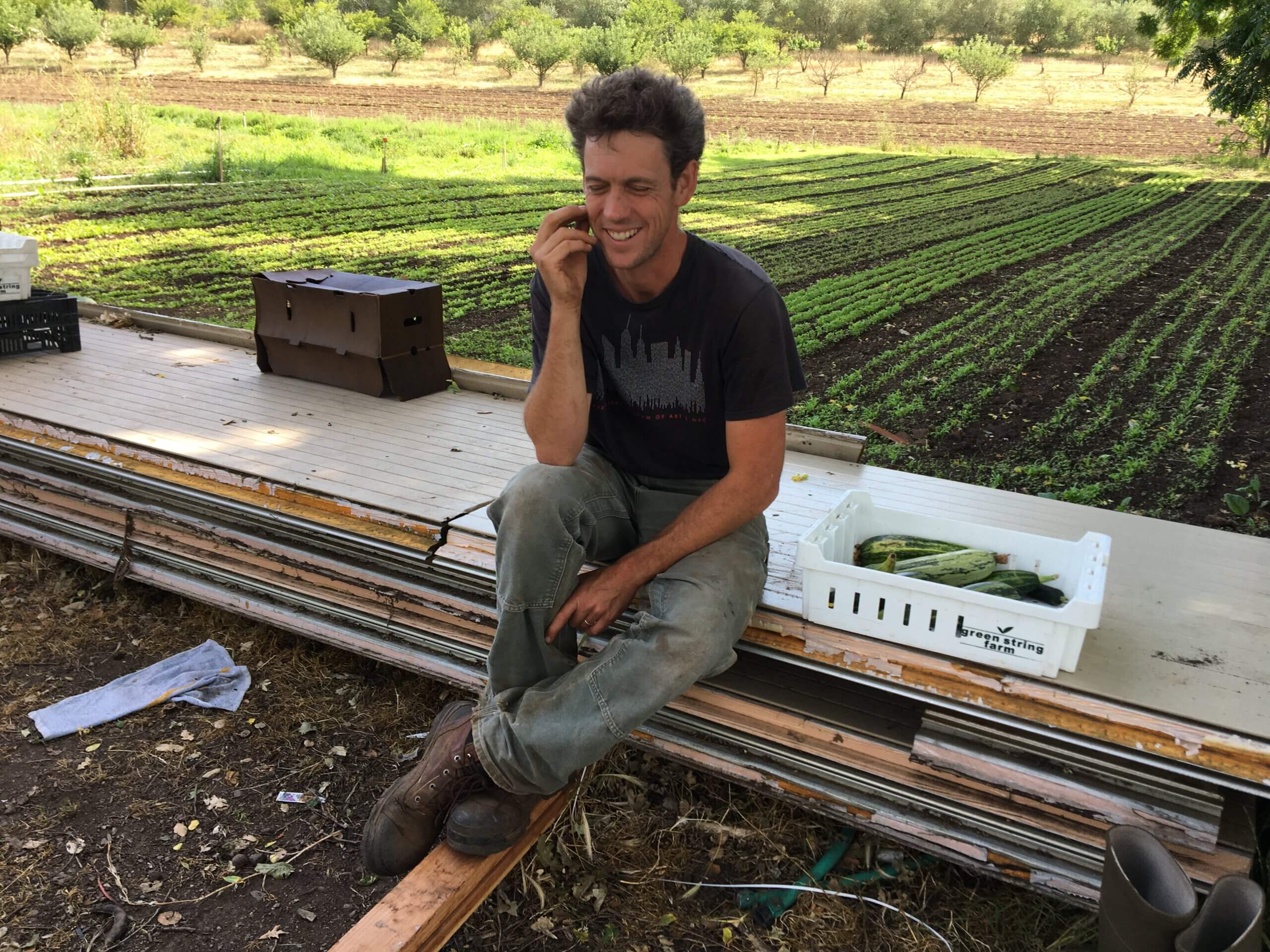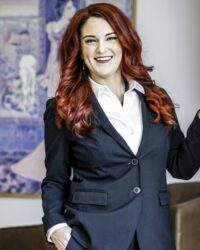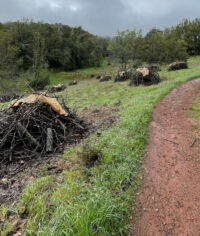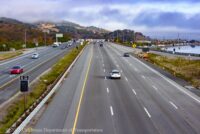By Jonah Raskin | Sun Contributor
Ross Cannard is part of a new farm-to-table movement, something that’s not yet a movement, but that might become one. It would link kitchen workers and chefs to field workers and farmers, and it’s beginning right here in Sonoma Valley.
I’ve known about the superlative local produce ever since I went to work in the fields at Oak Hill Farm along with men such as Jesus, Miguel, and Juan. I was recently reminded how tasty veggies can be, and how beautiful farms actually are, on an overcast Friday morning when I did what I love best – visit a farm and talk to farmers and farm workers.
Right away, I noticed Juan Umaña who rolled up his shirt sleeves and went to work in a newly plowed field with rich black soil. Born and raised in Colombia, with a tattoo of Che Guevara on his right arm, Umaña would normally be at Chez Panisse – Alice Waters’ flagship Berkeley restaurant – where he prepared sumptuous meals for foodies who arrived from all over the world.
But these are not normal times. Umaña’s life has taken a turn he hadn’t expected a short while ago. Today he’s not working with kitchen utensils, but rather with farm implements. Yes, he’s laboring in the fields on a farm, but don’t call him a farm worker, at least not yet. Most of the Latino farm workers I have known have not spoken English as well as Umaña, and none of them ever boasted a tattoo of Che Guevara, the Argentinian-born guerrilla, who would approve of the guerrilla-style farming that’s taking place in an environment where grapes, vineyards, and wine dictate many of the daily patterns of life in Sonoma.
Why, you ask, do I call it guerrilla-style farming? Because it’s bucking big, corporate agriculture that relies on big machines and that chews up and spits out workers. Also, because it builds soil rather than depletes it. You might call that revolutionary, or at least radical. There’s no one big field on Ross Cannard’s farm. Instead, there are many small plots of land under cultivation. Hey, small is still beautiful.
With his hands on his hips and a smile on his face, Umaña tells me, “Che would be totally behind what we’re doing here. It’s not socialism, but it’s socialistic. We are connecting with the land and with agricultural labor. We’re seeing where the produce we cook with actually comes from.”

Umaña is getting a crash course in agriculture, from the ground up, and he’s learning by doing. He and his pals drop the “Panisse” part of the name and call the restaurant “Chez,” which rhymes with Che, who would enjoy the diversity of crops and the quality, too, on Ross’s small, organic farm on a rugged side of Sonoma Mountain where more than a century ago Jack London raised organic vegetables, reared pigs and horses, and wanted to create a cooperative community. Alas, he died at the age of 40 in 1916 before he could translate his dream into reality.
The organic farm boasts old fruit trees – apples, cherries, peaches, apricots, and plums – plus blackberries that are still producing abundant fruit. There are herds of deer and wild turkeys, too, that feed on the cultivated crops and can cause havoc. Wonderful plants, such as amaranth, dandelions, purslane, and chickweed, grow wild.
With Chez Panisse closed, Umaña and his pals from South America have come to Sonoma to plant, cultivate, harvest, and enjoy being outdoors.
The farm probably has a name, though there’s no sign at the entrance on Sobre Vista Road or on any of the barns or structures which dot the landscape. Ross Cannard, who is in charge of the operation, is the son and grandson of farmers and teachers who helped to change the landscape of agriculture in Sonoma and beyond over the past 50 years.
Ross has the weight of the past on his shoulders, though he wears it lightly, and he’s delighted that cooks and kitchen workers from “Chez” have come to lend helping hands. For a while it seemed like Ross would become an academic; then he saw the handwriting on the wall and decided to follow the path his father and grandfather carved out, albeit on his own terms.
Before COVID-19 struck, Ross sold his produce to Alice Waters. With the arrival of the pandemic, he had to change his marketing and do it fast, or go broke. He created a CSA and now he provides consumers with boxes of fresh, organic produce. The consumers are happy to have them. Crops like strawberries will arrive in summer, and with fall all kinds of squashes.
So far the CSA has been the salvation of the farm and much of the community. “With COVID-19 the big food chains fell down,” Ross tells me. “In many cases, local food systems have filled the gaps. I think it’s good to have produce that’s grown a few miles from where you live. Consumers like to know where their produce originates and the name and identity of the farmer who grows it.”

Ross has learned heaps from his father, Bob. Indeed, he relies on Bob’s advice almost every day, though he’s not a slave to tradition. In many ways he’s overturning his father’s practices. Last year, his first year of farming on Sobre Vista, Ross used most of his father’s methods. Now he’s doing more things his own way.
“It’s good to listen to the old fogies,” Ross tells me. “But my dad has had some crazy ideas.”
Indeed, I’ve known Bob Cannard to grow acres of beets because he likes the way they look in a field, even though he doesn’t know where he’ll sell them. Ross appreciates the concept, though he wants to be able to sell what he grows, pay the workers, and stay in business. His father didn’t and still doesn’t want to own property. Ross wouldn’t mind owning the land on Sobre Vista. Ownership would make him feel a tad more secure.
Bob’s mantra was “simplicity.” Ross is embracing complexity. Bob didn’t trellis his tomatoes. Ross does. Bob didn’t aim to eliminate weeds. Ross wants to have more control over them. Bob was against refrigeration.
Ross tells me, “Having a plan and sticking to it is the single most important thing. It’s also the hardest part of farming.”
Dan Alterman – one of Juan Umañ’s co-workers from Chez – lends a hand at the farm. Born and raised in Buenos Aires, he worked as a chef at elite restaurants in Argentina before coming to the U.S. “It was sad for all of us when the restaurant had to close,” he tells me. “Here on the farm I’m learning how much work it takes to grow crops. I see the big picture. We add compost, plant, and harvest.”
After visiting with Ross and the laborers from South America, I stopped at Paul’s Produce on Arnold Drive and talked to Paul himself. Along with Bob Cannard, Paul is one of the most respected farmers in northern California. He grows for the farmers markets in the town of Sonoma. When I suggested that small local farms were doing great, he told me, “Some are and some aren’t.”
The CSA model is a step in the right direction, but it won’t end hunger in California or feed all the homeless. Still, Paul’s Produce and Ross Canard’s amazing farm on Sobre Vista are models that show what could be done if corporations didn’t control agriculture and the food industry.
You won’t hear anyone at Tyson Foods and similar corporations say what Ross does: “If our civilization is going to endure we’re going to have to see ourselves as a part of nature, not separate from it. At the end of the growing season, we want the soil to be as rich and healthy as it was when we started.”
Jonah Raskin is the author of Field Days: A Year of Farming, Eating, and Drinking Wine in California.






2 Comments